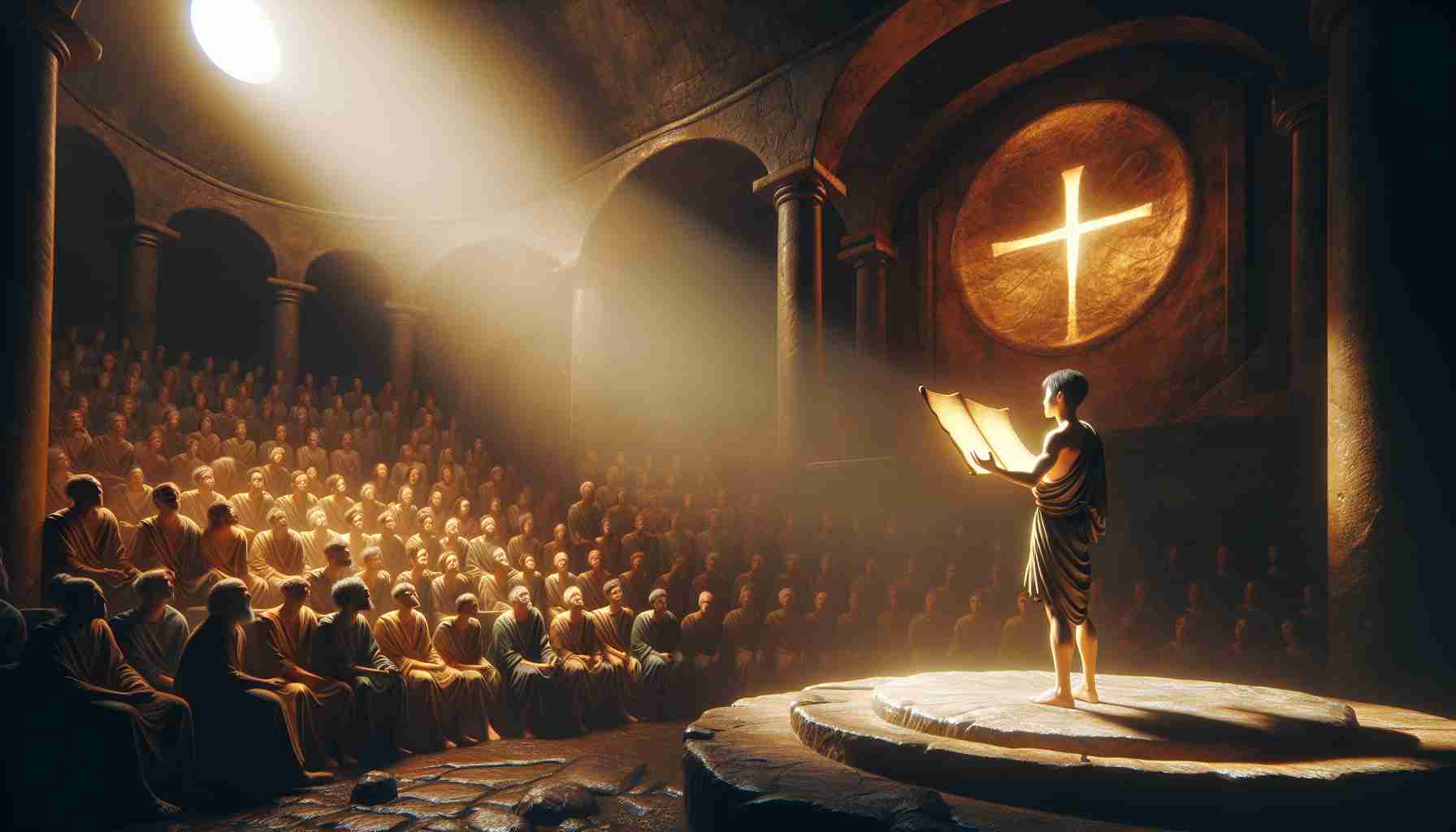

The salt breeze from the Aegean mingled with the scent of old parchment in Silas’s hands. He shifted beneath the olive tree atop the mountain ridge overlooking Pergamum’s colonnades, heart pounding against ribs bruised by Roman rods. The scroll was still warm from his journey across the sea, its words trembling through his fingertips like fire. It had come from Patmos—delivered in secret—written by the last of the old apostles. And it spoke directly to them.
He had read the letter three times before dawn.
“To the one who overcomes... I will give hidden manna.”
He wanted to believe that. He needed to.
But below him, the altar of Zeus, carved high into the stone cliff, bled smoke into the morning sky. The city seemed unshaken by warnings or promises. Faithful brothers were gone—dragged to prison or vanished without trials. And Silas, once bold before magistrates, now avoided eye contact in the crowded streets. At night, fear stole words from his prayers.
A twig snapped behind him.
He turned sharply, expecting a sentry. But it was a man—quiet, hooded, hands empty. His robe shimmered faintly where the morning light touched its hem. Silas didn’t know whether to speak or kneel. The man’s gaze met his, burning yet tender, and something ancient stirred behind those eyes.
"I know where you dwell," the man said, stepping closer, "where the throne of Satan is.”
Silas couldn’t breathe. Those were the words from the scroll.
“You held fast to My name,” the man continued, tone low as thunder behind mountains. “Even when Antipas was killed.”
Pain lanced through Silas at that name—Antipas, his teacher, martyred here at this very hill, days before the festival. He’d screamed in the brazen bull as they burned him alive. And Silas had hidden, helpless.
“I failed,” Silas whispered. “I was silent. I was afraid.”
The man knelt beside him. The breeze stilled.
“You have not been forgotten,” He said. “But you must not walk the path of Balaam—blessings sold cheap for comfort and survival.”
Silas looked down, tears hitting the dust between them.
“I want to stand..." he choked, "but the fear—”
The man reached out, pressing something into his palm. It was round, smooth—a white stone. At its center, a name etched in a language he could not read, but somehow knew. His.
“Overcome,” the man said, rising. “What I give, no man can take.”
And then He was gone.
The hill was quiet again, save for Silas’s breath and the distant cry of gulls.
He stood slowly, clenching the stone. The altar still smoked. The crowds still bowed to idols. But inside Silas, something shifted. He felt the fire that once lit his bones rekindle—hot and holy.
He descended the hill with new steps—the parchment tucked beneath his robe, the stone against his heart.
He would speak. Stand. Obey.
God's promise was no longer just written.
It had been spoken to him directly—etched now into the very marrow of his soul.
The salt breeze from the Aegean mingled with the scent of old parchment in Silas’s hands. He shifted beneath the olive tree atop the mountain ridge overlooking Pergamum’s colonnades, heart pounding against ribs bruised by Roman rods. The scroll was still warm from his journey across the sea, its words trembling through his fingertips like fire. It had come from Patmos—delivered in secret—written by the last of the old apostles. And it spoke directly to them.
He had read the letter three times before dawn.
“To the one who overcomes... I will give hidden manna.”
He wanted to believe that. He needed to.
But below him, the altar of Zeus, carved high into the stone cliff, bled smoke into the morning sky. The city seemed unshaken by warnings or promises. Faithful brothers were gone—dragged to prison or vanished without trials. And Silas, once bold before magistrates, now avoided eye contact in the crowded streets. At night, fear stole words from his prayers.
A twig snapped behind him.
He turned sharply, expecting a sentry. But it was a man—quiet, hooded, hands empty. His robe shimmered faintly where the morning light touched its hem. Silas didn’t know whether to speak or kneel. The man’s gaze met his, burning yet tender, and something ancient stirred behind those eyes.
"I know where you dwell," the man said, stepping closer, "where the throne of Satan is.”
Silas couldn’t breathe. Those were the words from the scroll.
“You held fast to My name,” the man continued, tone low as thunder behind mountains. “Even when Antipas was killed.”
Pain lanced through Silas at that name—Antipas, his teacher, martyred here at this very hill, days before the festival. He’d screamed in the brazen bull as they burned him alive. And Silas had hidden, helpless.
“I failed,” Silas whispered. “I was silent. I was afraid.”
The man knelt beside him. The breeze stilled.
“You have not been forgotten,” He said. “But you must not walk the path of Balaam—blessings sold cheap for comfort and survival.”
Silas looked down, tears hitting the dust between them.
“I want to stand..." he choked, "but the fear—”
The man reached out, pressing something into his palm. It was round, smooth—a white stone. At its center, a name etched in a language he could not read, but somehow knew. His.
“Overcome,” the man said, rising. “What I give, no man can take.”
And then He was gone.
The hill was quiet again, save for Silas’s breath and the distant cry of gulls.
He stood slowly, clenching the stone. The altar still smoked. The crowds still bowed to idols. But inside Silas, something shifted. He felt the fire that once lit his bones rekindle—hot and holy.
He descended the hill with new steps—the parchment tucked beneath his robe, the stone against his heart.
He would speak. Stand. Obey.
God's promise was no longer just written.
It had been spoken to him directly—etched now into the very marrow of his soul.